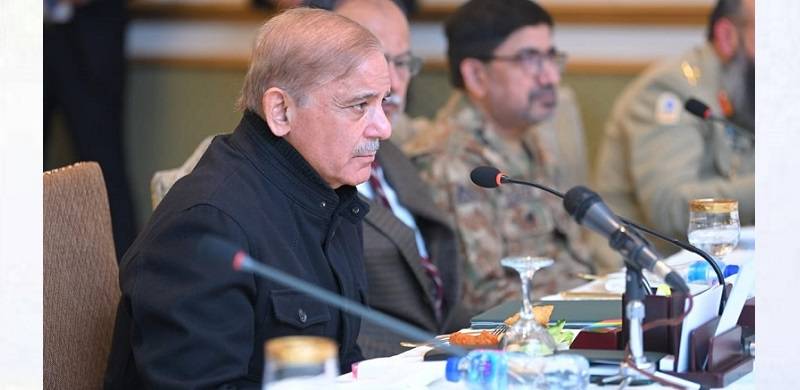
The government is currently in attempts to save itself and the economy, but both seem to be going down together as of this moment, according to senior journalist and economic expert Shahbaz Rana.
Speaking to a private news channel on Thursday, Rana said that official meetings to adopt a plan to deal with the situation have been fruitless so far.
"Two lengthy meetings were held, yesterday and today, but none of them bore fruit," the journalist said.
"The fact is if we are to avert a default, we will have to raise the tariff of power and gas, while the rules on import and exchange will have to be relaxed in order to approach the International Monetary Fund."
Earlier today, Minister of State for Finance Aisha Ghaus Pasha said that the government was willing to accept all conditions of the IMF in order to revive the deal with the financial institution.
“The government is willing to make tough decisions,” Pasha said during a briefing to the Senate’s Standing Committee on Finance.
According to the minister, the government doesn’t want to burden people, but that the ‘IMF wants to steer us in a different direction.’
The lawmaker highlighted that the country was up against tough times. “The situation is extraordinary and it calls for efforts in unison,” she stressed.
Pasha added that the government was fully cognisant of the situation and in process of engaging the IMF.
“The notion that we do not have a crisis-management plan at work is false,” she maintained.
According to a report, Pakistan is facing existential multi-dimensional crises of politics and economy with a highly dysfunctional state. It is about much more than democracy and debt. Short-term fixes and political engineering may not work this time. The country needs a radical break from the past policies but nobody wants to do it.
Hence Pakistan could sink deeper into the quagmire especially if the IMF programme is not resumed within the next few weeks. There is no sign that the talks with the IMF are going to start soon as was previously indicated by the prime minister, and the financial crisis seems to be intensifying.
Speaking to a private news channel on Thursday, Rana said that official meetings to adopt a plan to deal with the situation have been fruitless so far.
"Two lengthy meetings were held, yesterday and today, but none of them bore fruit," the journalist said.
"The fact is if we are to avert a default, we will have to raise the tariff of power and gas, while the rules on import and exchange will have to be relaxed in order to approach the International Monetary Fund."
Earlier today, Minister of State for Finance Aisha Ghaus Pasha said that the government was willing to accept all conditions of the IMF in order to revive the deal with the financial institution.
“The government is willing to make tough decisions,” Pasha said during a briefing to the Senate’s Standing Committee on Finance.
According to the minister, the government doesn’t want to burden people, but that the ‘IMF wants to steer us in a different direction.’
The lawmaker highlighted that the country was up against tough times. “The situation is extraordinary and it calls for efforts in unison,” she stressed.
Pasha added that the government was fully cognisant of the situation and in process of engaging the IMF.
“The notion that we do not have a crisis-management plan at work is false,” she maintained.
According to a report, Pakistan is facing existential multi-dimensional crises of politics and economy with a highly dysfunctional state. It is about much more than democracy and debt. Short-term fixes and political engineering may not work this time. The country needs a radical break from the past policies but nobody wants to do it.
Hence Pakistan could sink deeper into the quagmire especially if the IMF programme is not resumed within the next few weeks. There is no sign that the talks with the IMF are going to start soon as was previously indicated by the prime minister, and the financial crisis seems to be intensifying.

